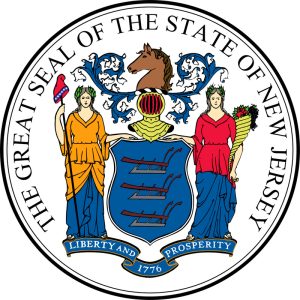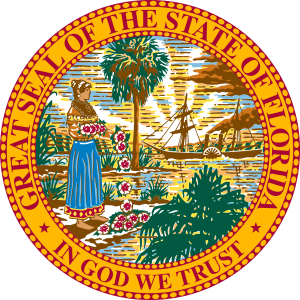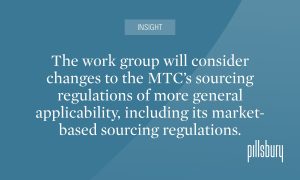On July 3, 2023, New Jersey Governor Phil Murphy signed A.B. 5323 into law to amend New Jersey’s Corporation Business Tax (CBT).  The bill enacted a variety of clarifications, corrections and modifications to the CBT.
The bill enacted a variety of clarifications, corrections and modifications to the CBT.
Articles Posted in Apportionment
No Day Off for Buehler: California Sources Gain from Sale of Intangible to Domicile and Denies Other State Tax Credit
 The California Office of Tax Appeals (OTA) held a California resident was not entitled to claim an other state tax credit (OSTC) for taxes paid to Massachusetts because gain from the sale of an LLC membership interest was wholly sourced to the taxpayer’s domicile under California law. Continue Reading ›
The California Office of Tax Appeals (OTA) held a California resident was not entitled to claim an other state tax credit (OSTC) for taxes paid to Massachusetts because gain from the sale of an LLC membership interest was wholly sourced to the taxpayer’s domicile under California law. Continue Reading ›
Certainly COP: Florida Court Rejects Department of Revenue’s Attempt to Conflate Costs of Performance Sourcing With Market-Based Sourcing
 On March 1, 2023, a Florida trial court confirmed that costs of performance (COP) sourcing, not market-based sourcing, is Florida’s standard methodology for sourcing service receipts for apportionment purposes. In Billmatrix Corp. v. State of Florida, Department of Revenue, No. 2020-CA-000435 (Fla. 2d Cir. Ct. Mar. 1, 2023), the court strongly rebuked the Florida Department of Revenue for attempting to apply market-based sourcing in contravention of its own COP sourcing regulation. Continue Reading ›
On March 1, 2023, a Florida trial court confirmed that costs of performance (COP) sourcing, not market-based sourcing, is Florida’s standard methodology for sourcing service receipts for apportionment purposes. In Billmatrix Corp. v. State of Florida, Department of Revenue, No. 2020-CA-000435 (Fla. 2d Cir. Ct. Mar. 1, 2023), the court strongly rebuked the Florida Department of Revenue for attempting to apply market-based sourcing in contravention of its own COP sourcing regulation. Continue Reading ›
Texas Comptroller Takes a Serious Look at Sourcing Regulation After SiriusXM Loss
The Texas Comptroller of Public Accounts has proposed significant amendments to its service receipts sourcing regulation in the wake of the Texas Supreme Court’s decision in Sirius XM Radio, Inc. v. Hegar, 643 S.W.3d 402 (Tex. 2022). The proposed amendments would dispense with the Comptroller’s long-standing “receipts-producing, end-product act” test and align the underlying regulation with the SiriusXM decision.
The California Franchise Tax Board Fails to Follow the Order of Its Market-Based Sourcing Cascading Rules

In the Appeal of Sheward, 2022-OTA-228P (May 25, 2022), the California Office of Tax Appeals (OTA) held the California Franchise Tax Board (FTB) failed to follow its own market-based sourcing apportionment regulation by prematurely using reasonable approximation to source the income of a multistate unitary business. During the tax year 2017, the taxpayer operated a business providing in-person services as a horse racetrack judge in California and Minnesota but failed to file a California return. Related to such services, the taxpayer received Form 1099s from the State of California, the State of Minnesota, and Minnesota Harness Racing, Inc.
The Curious First Meeting of the MTC’s Model Receipts Sourcing Regulations Work Group
The SALT team briefs the outcomes of the first meeting of the Multistate Tax Commission (MTC).
Read More: Model Receipts Sourcing Regulations Work Group’s Curious First Meeting(pillsburylaw.com)
California Court Holds Nonresidents’ Pass-through Income from Intangibles Is Taxable if It Is Classified as Business Income at the Entity Level.
The California Court of Appeal held a nonresident S corporation shareholder’s pro rata share of gain on the sale of goodwill classified as business income by the S corporation has a California source and is subject to tax for personal income tax purposes to the extent of the S corporation’s California apportionment formula and is not sourced 100 percent to the nonresident shareholder’s domicile. Continue Reading ›
Taxpayer Files Court Action Challenging California’s Proposition 39 (2012) and its Mandatory Single-Sales Factor Apportionment Formula

In One Technologies LLC v. Franchise Tax Board, an out-of-state California corporate taxpayer filed suit in California trial court challenging the state’s mandatory single sales factor apportionment formula on the basis its passage in 2012 via voter initiative Proposition 39 unconstitutionally violated the “single subject rule.”
California Lawyers Association’s Taxation Webinar
Pillsbury SALT attorney Jeff Phang will present during CLA’s taxation webinar on September 13. Jeff is partnering with Annie Rothschild (Eversheds Sutherland) to present on the topic, “Recent Developments in California Income Tax Apportionment and Sourcing Law.”
COST’s 2021 State Transaction Tax Webinar
Pillsbury SALT partner Jeffrey Vesely will present during COST’s State Transaction Tax Webinar on July 15. Continue Reading ›
Continue Reading ›
 SeeSALT Blog
SeeSALT Blog


